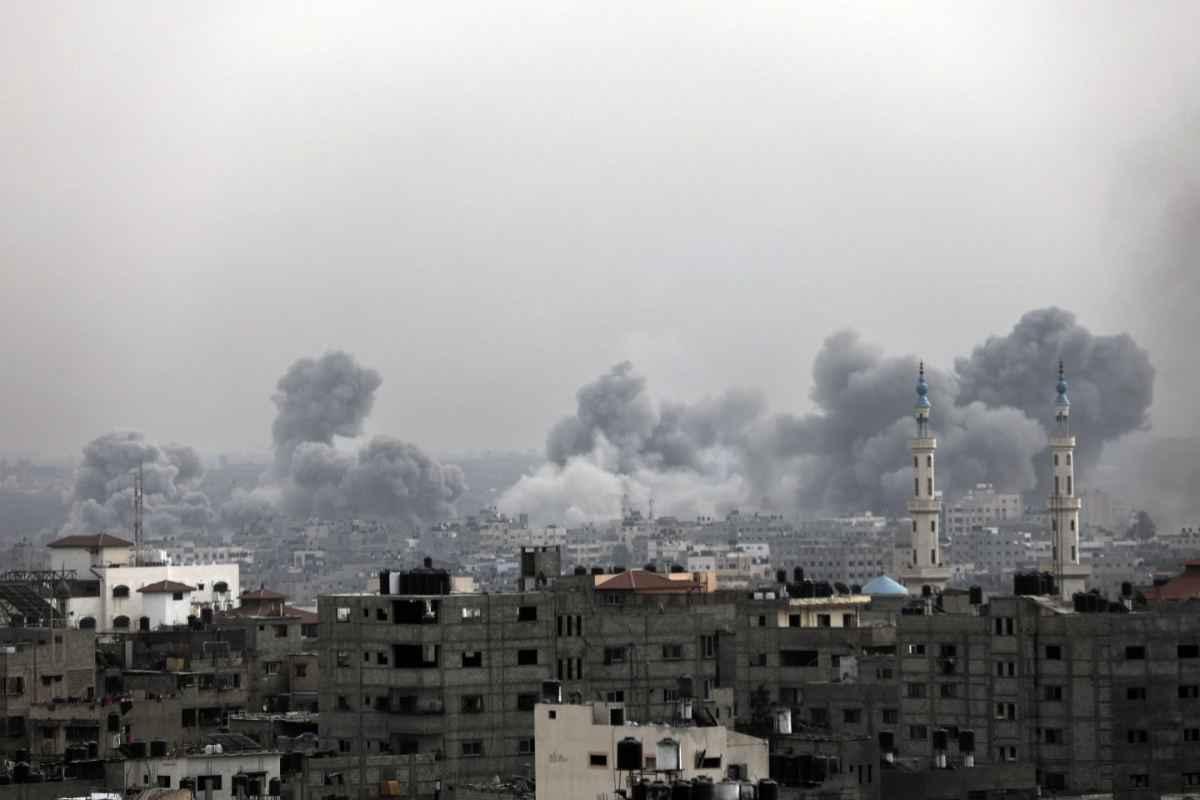JERUSALEM: Israeli troops and armor pushed deeper into northern and central Gaza on Monday, as the UN and medical staff warned that airstrikes are hitting closer to hospitals where tens of thousands of Palestinians have sought shelter alongside thousands of wounded.
The Israeli advances put their forces on both sides of Gaza City and the surrounding areas of northern Gaza, in what Prime Minister Benjamin Netanyahu called a “second stage” of the war.
Casualties on both sides are expected to rise sharply as Israeli forces and Palestinian fighters battle in dense residential areas.
Hundreds of thousands of Palestinians remain in the north and would no longer be able to escape if the north-south highway is blocked.
Around 117,000 displaced people are staying in hospitals in northern Gaza, alongside thousands of patients and staff, hoping they will be safe from strikes, according to UN figures.
Most residents heeded Israel’s orders to flee to the southern part of the besieged territory, but many stayed in part because Israel has also bombarded targets in so-called safe zones.
The death toll among Palestinians passed 8,000, mostly women and minors, the Gaza Health Ministry said. More than 1.4 million people in Gaza have fled their homes.
Israeli forces appeared to be driving deeper into Gaza from the north. Video released Monday by the military showed armored vehicles moving among buildings and soldiers taking positions inside a house.
The military said that overnight its troops had killed dozens of militants who attacked from inside buildings and tunnels. It said that in the last few days, it had struck more than 600 militant targets, including weapons depots and anti-tank missile launching positions
On Sunday, the largest convoy of humanitarian aid yet — 33 trucks — entered southern Gaza from Egypt. Earlier, crowds of people broke into four UN facilities and took food supplies in what the UN called a sign that civil order was starting to break down amid increasing desperation.
Israel’s siege has pushed Gaza’s infrastructure nearly to collapse. With no central power for weeks, hospitals are struggling to keep emergency generators running to operate incubators and other life-saving equipment.
The UN agency for Palestinian refugees, known as UNRWA, has been trying to keep water pumps and bakeries running. Last week, UN officials said hunger was growing. Communications were restored to most of Gaza’s 2.3 million people Sunday more than a day without phone and internet services.


